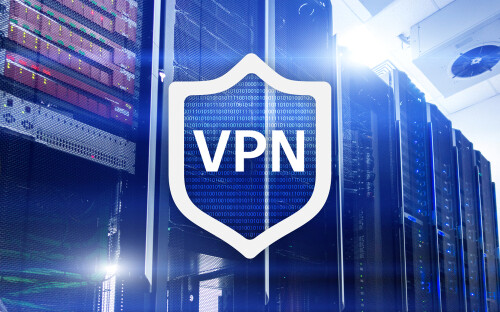Virtual private networks (VPNs), can help you unblock content and VPNS can protect you from hackers and shady third-parties. VPNs offer privacy online and can stop governments, schools, and employers from tracking the sites you visit. But, how do VPNs protect against data leaks? And, importantly, how do you know your VPN is leak-free?
How a VPN Provides Security
A VPN is designed to ensure anonymity, privacy, and security online. But, about 84 percent of VPNs leak user IP addresses. One way to stay safe is to avoid free VPNs which collect data and personal information. A reliable VPN service should offer:
256-Bit Encryption
VPN subscriptions should include security features like kill switches and leak protection. Use the automatic kill switch if there?s a VPN connection drop for any reason. This prevents your IP address from being shown to sites you visited.
A Privacy Disclaimer
Your VPN provider shouldn?t track or record the sites you visit. Look for a privacy disclaimer that indicates they won?t log your activity or record it. The team at FindReviews.com highlight this as being a particular concern for many, as data protection is becoming an increasingly potent topic.
A Large Network
The larger the VPN, the more stability it offers. And, with increased functionality, you shouldn?t have any problem accessing blocked sites.
The VPN Test: How Data Leaks Take Place
There are various sites and software tools that can test your VPN. You want to ensure its leak-free as there are different types of data leaks that can occur. Where data leaks take place:
Your IP Address
If your VPN is working correctly, the IP address should show the VPN?s site, not yours. To test and fix a leak here:
- Disconnect the VPN. Visit a test site and write down your IP address. Then reconnect to the VPN.
- The IP shown should be the VPN?s. If yours shows, there?s a leak.
- To fix an IP address leak, only use a VPN with built-in DNS leak protection that works on a dedicated DNS server.
A DNS and HTTP request match
A DNS request source can reveal if your DNS and HTTP match up and are coming from the same location. If you have a DNS leak, your IP address is exposed and your data isn?t encrypted. Switch to a VPN that?s encrypted.
Low-level encryption
Low-level encryption can cause data leaks. VPNs that use PPTP, L2TP or SockS5 protocols don?t offer strong encryption. To fix this:
- Switch to a VPN with 256-bit encryption.
- Make sure it offers an OpenVPN protocol.
- Use a paid VPN that provides stability, security and privacy.
Your operating system, browser and type of connection
OS detection tools can determine your operating system and your internet connection. A mismatched configuration can leak your data. To fix this, ensure you are setting up the VPN software correctly. If you download the app, don?t skip any steps and contact VPN support if you need assistance.
WebRTC
WebRTC (web browsers that use real-time communication) helps with peer-to-peer communications. A test can reveal your IP address through a STUN request. Stun results will divulge your IP and VPN. If you experience a leak in your WebRTC:
- Change your firewall rules.
- Block requests that extend beyond your VPN.
- Disable your browser?s WebRTC or use an extension or add-on.
SSL traffic and time zones
Your VPN?s time zone should come up and SSL support should encrypt your data. If it comes through as plain text or your time zone appears, you?re not encrypted. To fix this, switch to a VPN that offers 256-bit AES encryption.
Bottom Line
Test your VPN to ensure its leak-free. Select a reliable VPN provider and test your IP address. Take caution with free VPNs that might track and record your data. And, read the privacy rules to know the type of VPN service you are using so you can protect your personal information.










